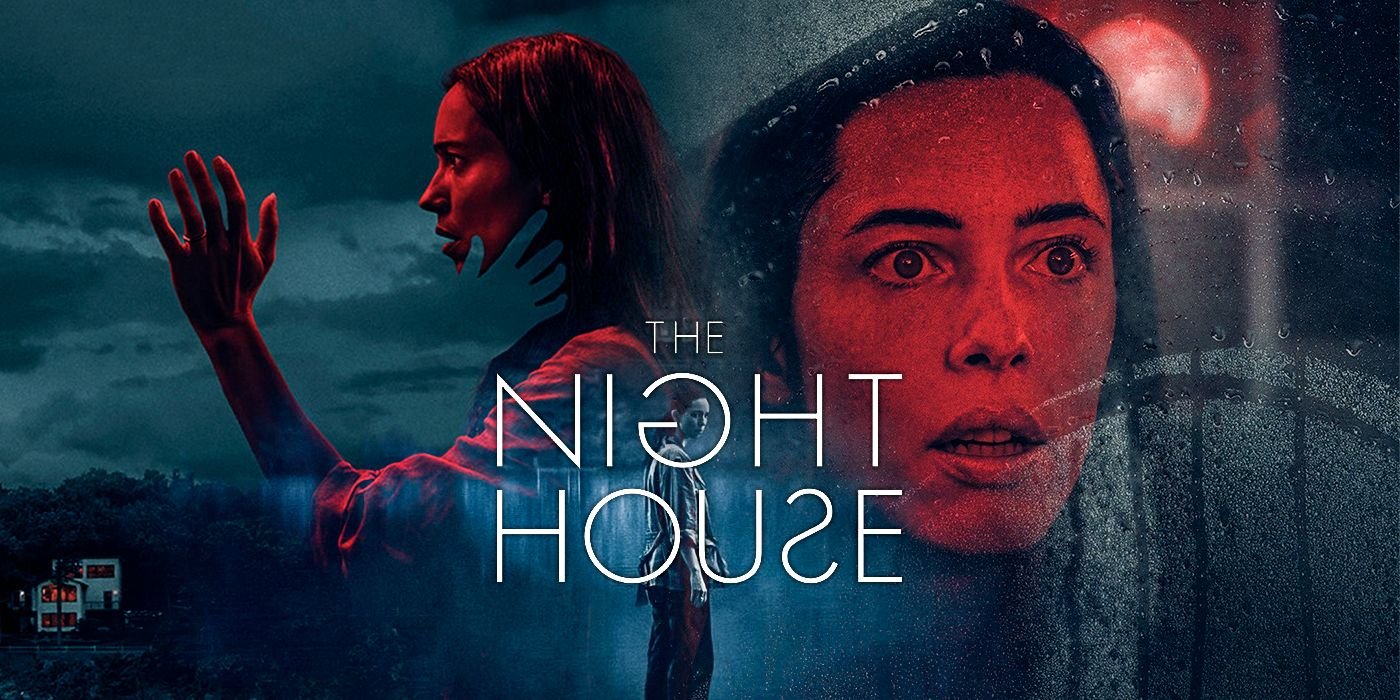
Grief takes different twists and turns in
The Night House
by Kathia Woods
There are not very many horror movies that provide us excitement and a fantastic tale, but The Night House gives both of us. David Bruckner's enthusiastic thriller with Ben Collins and Luke Piotrowski's scripts boasts an amazing performance from Rebecca Hall. This movie is full of both mental and grief-focused emotional investigation. The use of sound, sights, and tight acceleration is also incredibly horrific and significant.
The film tells the story of Beth, a teacher who recently lost her husband to suicide. Beth is in a state of emotional turmoil as a result of Owen's (Evan Jonikeit) death. In her quest to understand why her husband committed suicide, she realizes that her husband, whom she had been married to for nearly fifteen years, was not the man she thought he was. Her grief is exacerbated by the fact that her house is haunted. She dreams about him all the time. Soon, she realizes that it is not the dreams that are unraveling her troubling reality, but rather other forces.
The Night House's scariness stems from its effective use of sound and imagery. We're not sure whether Beth is hallucinating, having a nightmare, or uncovering secrets. The combination of the foregoing takes the viewer on an exciting ride. Horror films aren't always great because of the gore, but it's the suspense of something horrible happening at any moment that makes them great, and The Night House does this brilliantly. It's a mix of the supernatural, ghosts, and deep psychological mind games. We are also reminded that Beth is still dealing with a different type of grief that suicide brings. All of this keeps us on our toes.
Another advantage of The Night House is that it provides hints but makes us work for the answers. Just as one mystery is solved, the film takes an unexpected turn. These twists do not detract from the experience; on the contrary, they enhance it.
We wonder if she's living with a ghost, if she's hiding a dark secret that's about to be revealed, or if she's just severely depressed. All of these questions do not yield a conclusive answer. The writers took great care in adding layers to the unraveling of the mystery that always follows Beth around. It causes our brains to overreact.
The Night House deftly blends psychological fear and emotional loss. The film works because Rebecca Hall is outstanding as the widow attempting to cope with her husband's death. She could have played this character as a hysterical woman, but she chose to show range instead. Grief is a multi-layered process, and we were willing to accompany Beth on her journey because of Hall's performance. In the scene where she is speaking with a parent at a parent-teacher conference, she expresses to the woman that she does not have the emotional range to care about her child's grade at the moment. In another film, her character would have pretended to be coping. Still, Beth is front and center, informing the adult sitting across from her that she lacks the patience and time to care about this woman's problems.
Another advantage of The Night House is that it does not rush through the story. Another affirmative is the commitment to keep us, the audience, on our toes. We often get tension with a hurried ending. The filmmakers realized that this had to be a journey. The conclusion is unpredictable because we are determined to determine what is real and what is fantasy.
The story works even better because of the fantastic supporting cast. Claire's best friend, Sarah Goldberg, is the voice of reason in Beth's life. Vondie Curtis-Hall, the concerned neighbor and secret keeper, is equally steadfast.
The Night House is a film that works from start to finish. Because of the psychological thriller elements, it will also appeal to non-horror fans. When it comes to original content and complete films, The Night House is exactly what was missing from the predictable summer lineup.

